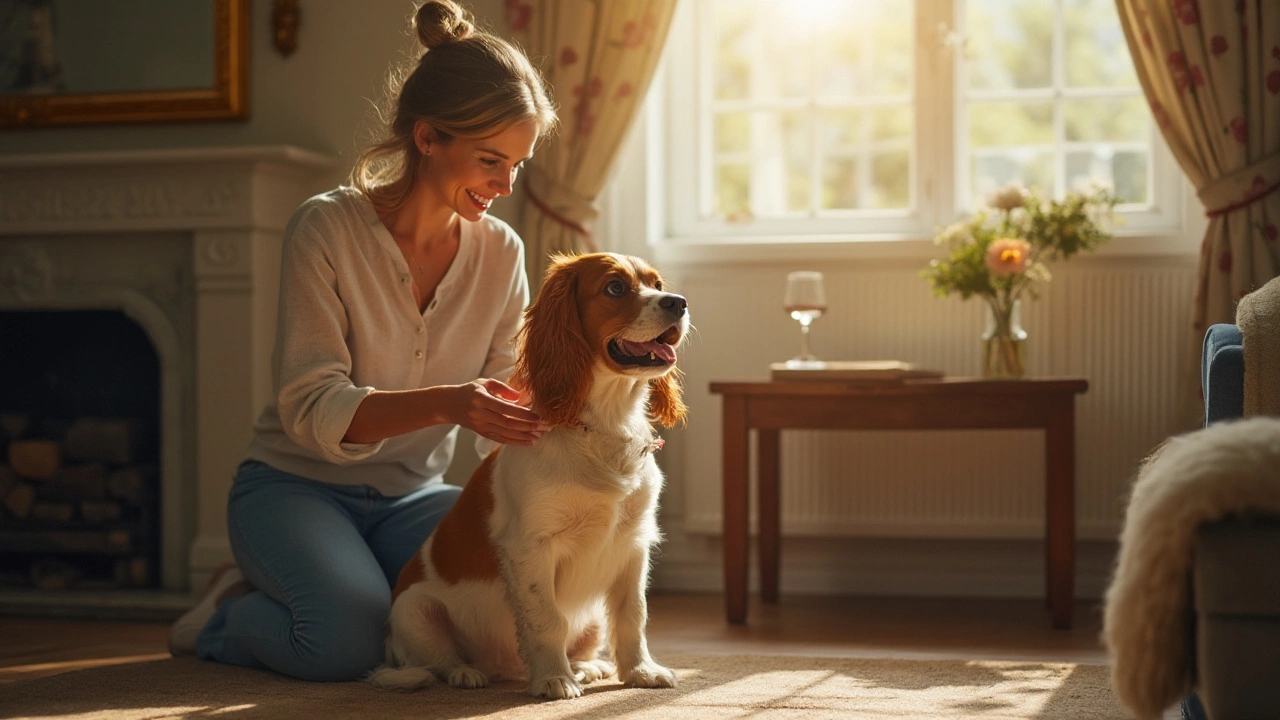Puppy Biting: Why It Happens and How to Stop It Fast
Ever feel like your new puppy is testing your hand like a chew toy? That little nip is normal, but if you let it slide, it can turn into a habit. The good news is you can curb the bite in a few days with clear, consistent steps.
First, know the reasons. Most nipping comes from two sources: teething and play. Puppies have 28 baby teeth that start to feel sore at around three weeks old. Just like a toddler, they look for something to chew. At the same time, puppies use their mouths to explore the world and to tell you, “I’m excited!” When they bite too hard, it’s usually because they’re over‑stimulated.
Step‑by‑Step: How to React When Your Puppy Bites
1. Stay calm and silent. A high‑pitched “Ow!” can sound like a game, encouraging more bites. Instead, let out a short, firm “No” and immediately stop playing.
2. Redirect to a chew toy. Keep a selection of safe chew toys nearby—rubber rings, rope toys, or a cold wet washcloth. Offer the toy the moment the bite starts. The puppy learns, “Mouth on toy, not on human.”
3. Pause the interaction. If the bite continues, walk away for a few seconds. This teaches the pup that biting ends the fun. After a brief break, resume play, rewarding gentle mouthing.
4. Reward soft paws. When your puppy uses its mouth lightly or licks instead of nipping, praise them with a happy voice and a treat. Positive reinforcement makes the calm behavior stick.
Extra Tools: Toys and Techniques That Help
Choosing the right chew toys can cut the biting problem in half. Vet‑approved options like KONG® Classic, Nylabone Puppy Chew, and natural rubber balls are durable and safe for teething gums. Freeze a wet washcloth for a soothing, cold chew—just the right pressure to ease sore teeth.
Another trick is “bite inhibition” training. Gently let the puppy mouth your hand, then let out a quick, soft “ouch” and stop contact. Over time, they learn to control bite pressure. Consistency is key; everyone in the household must use the same cue.
Remember, never punish or yell. Harsh corrections can scare the pup and cause fear‑based aggression later. Keep sessions short—5 to 10 minutes a few times a day—so the puppy stays engaged without getting overstimulated.
Finally, give your puppy plenty of exercise. A tired pup is less likely to bite out of excess energy. A brisk walk, a game of fetch, or a short training session will burn off that hyper energy.
By understanding why your puppy bites and applying these simple steps, you’ll see fewer nips and more happy cuddles. Keep chew toys handy, stay consistent, and celebrate gentle play. Your puppy will learn fast, and you’ll enjoy a peaceful bond for years to come.

